
Virgin Gorda: The Jewel of the British Virgin Islands
Nestled in the heart of the British Virgin Islands, Virgin Gorda is famed for its stunning natural beauty and serene ambiance. The island, the third largest in the archipelago, offers a unique blend of lush landscapes, crystal-clear waters, and rich cultural history. Whether you're an adventure seeker or a relaxation enthusiast, Virgin Gorda provides an ideal backdrop for both excitement and tranquility. One of the island's most iconic attractions is The Baths, a labyrinth of granite boulders forming natural pools and hidden grottoes. This geological wonder is perfect for exploring, snorkeling, and photographing. The pristine beaches, such as Savannah Bay, offer long stretches of powdery white sand and gentle waves, making them perfect for sunbathing and swimming. Beyond its natural allure, Virgin Gorda is home to a vibrant community and a rich history. Spanish Town, the island's main settlement, is a charming area filled with local shops, restaurants, and historical sites. Visitors can also explore the Copper Mine National Park, where the ruins of a 19th-century copper mine offer a glimpse into the island's past. For those looking to indulge in luxury, Virgin Gorda boasts several high-end resorts and spas, offering unmatched views and top-tier service. From sailing and diving to hiking and dining, Virgin Gorda promises a memorable experience for every traveler.
Local tips in Virgin Gorda
- Visit The Baths early in the morning to avoid the crowds and enjoy the natural pools in peace.
- Rent a car or scooter to explore the island at your own pace and discover hidden gems off the beaten path.
- Don't miss the sunset from the top of Gorda Peak National Park for breathtaking panoramic views.
- Try the local seafood at one of the island's many beachside restaurants for a taste of authentic Caribbean cuisine.
- Bring reef-safe sunscreen to protect the island's marine life while enjoying the beautiful beaches and snorkeling spots.
Virgin Gorda: The Jewel of the British Virgin Islands
Nestled in the heart of the British Virgin Islands, Virgin Gorda is famed for its stunning natural beauty and serene ambiance. The island, the third largest in the archipelago, offers a unique blend of lush landscapes, crystal-clear waters, and rich cultural history. Whether you're an adventure seeker or a relaxation enthusiast, Virgin Gorda provides an ideal backdrop for both excitement and tranquility. One of the island's most iconic attractions is The Baths, a labyrinth of granite boulders forming natural pools and hidden grottoes. This geological wonder is perfect for exploring, snorkeling, and photographing. The pristine beaches, such as Savannah Bay, offer long stretches of powdery white sand and gentle waves, making them perfect for sunbathing and swimming. Beyond its natural allure, Virgin Gorda is home to a vibrant community and a rich history. Spanish Town, the island's main settlement, is a charming area filled with local shops, restaurants, and historical sites. Visitors can also explore the Copper Mine National Park, where the ruins of a 19th-century copper mine offer a glimpse into the island's past. For those looking to indulge in luxury, Virgin Gorda boasts several high-end resorts and spas, offering unmatched views and top-tier service. From sailing and diving to hiking and dining, Virgin Gorda promises a memorable experience for every traveler.
When is the best time to go to Virgin Gorda?
Iconic landmarks you can’t miss
The Baths
Explore the stunning natural rock formations and crystal-clear waters of The Baths in the British Virgin Islands, a tropical paradise for beach lovers and adventurers.
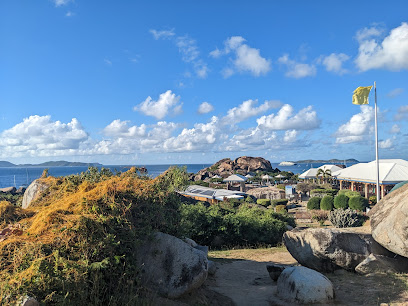
Cyril B. Romney Tortola Pier Park
Experience the vibrant culture and scenic beauty of Tortola Pier Park, a premier shopping, dining, and entertainment destination in the British Virgin Islands.
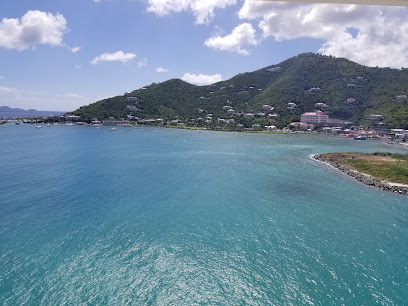
Bitter End Yacht Club
Experience the ultimate Caribbean retreat at Bitter End Yacht Club, where adventure meets relaxation amidst breathtaking natural beauty.
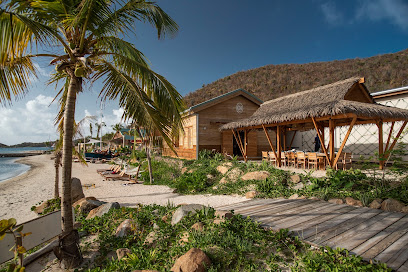
CocoMaya Restaurant
Experience Asian fusion cuisine in a stunning beachfront setting at CocoMaya, Virgin Gorda. Enjoy ocean views, chic vibes, and culinary creativity.
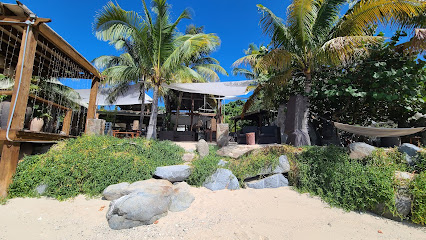
Leverick Bay Resort & Marina
Experience the beauty and tranquility of Leverick Bay Resort & Marina in Virgin Gorda, where luxury meets adventure in a tropical paradise.

Rosewood Little Dix Bay
Experience the ultimate luxury at Rosewood Little Dix Bay, where pristine beaches, exquisite dining, and unparalleled service create unforgettable memories.

Devil's Bay National Park
Explore the stunning rock formations and crystal-clear waters at Devil's Bay National Park, a breathtaking haven in the British Virgin Islands.
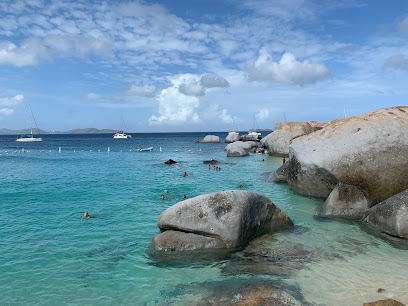
Saba Rock Resort
Discover the enchanting beauty of Saba Rock Resort in the British Virgin Islands, where luxury meets adventure in a tropical paradise.
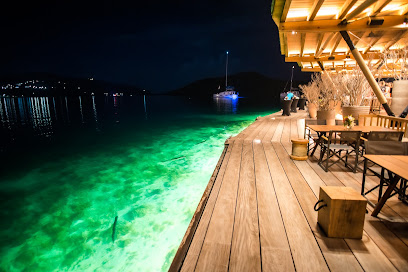
Hog Heaven
Discover Hog Heaven in Virgin Gorda: a culinary gem offering local flavors, stunning views, and a vibrant atmosphere perfect for tourists seeking a unique dining experience.
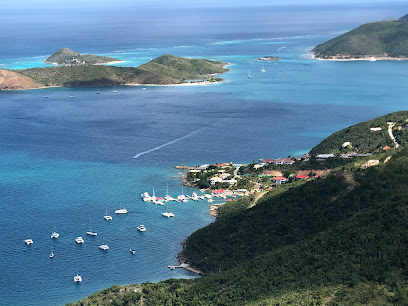
Oil Nut Bay
Discover Oil Nut Bay: An exclusive Virgin Gorda resort offering luxury villas, pristine beaches, and a commitment to sustainable living.
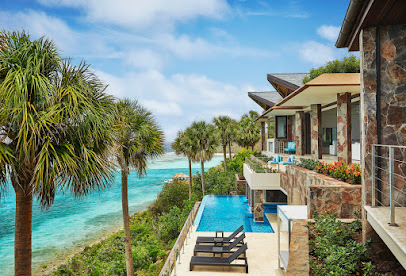
Top of the Baths
Experience the allure of Caribbean cuisine at Top of the Baths, where breathtaking views meet local flavors in the heart of the British Virgin Islands.
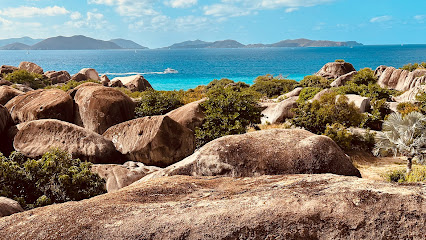
J.R. O'Neal Botanical Gardens
Discover the vibrant flora and tranquil landscapes of J.R. O'Neal Botanical Gardens, a serene oasis in the British Virgin Islands.
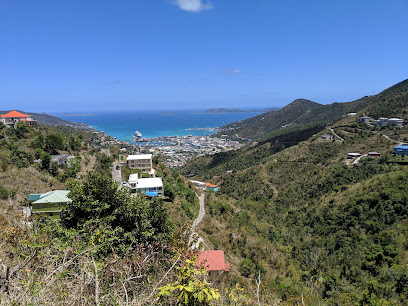
Gorda Peak National Park
Hike to Virgin Gorda's highest point for panoramic views, rare plants, and unique wildlife in a protected Caribbean dry forest.
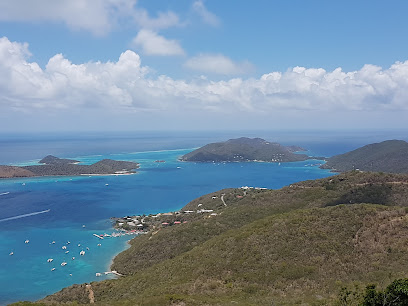
Callwood Rum Distillery
Explore Callwood Rum Distillery in Cane Garden Bay, a historic gem celebrating the art of rum-making in the British Virgin Islands.
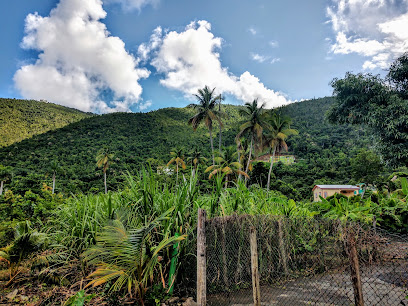
Virgin Gorda Yacht Harbour
Experience the idyllic Virgin Gorda Yacht Harbour, a haven for boat lovers and a gateway to explore the stunning British Virgin Islands.
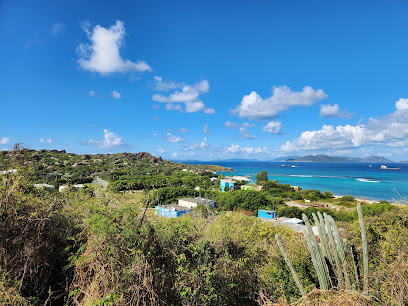
Unmissable attractions to see
Coral World Ocean Park
Discover the beauty of Caribbean marine life at Coral World Ocean Park, St. Thomas' premier underwater adventure and conservation center.
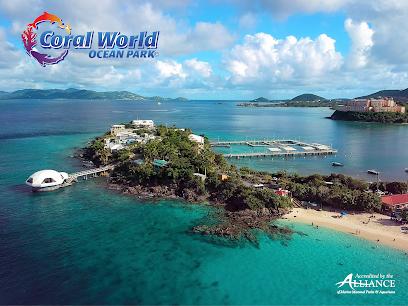
Virgin Islands National Park
Discover pristine beaches, lush forests, and historical ruins in this Caribbean paradise. Explore the natural and cultural wonders of St. John.
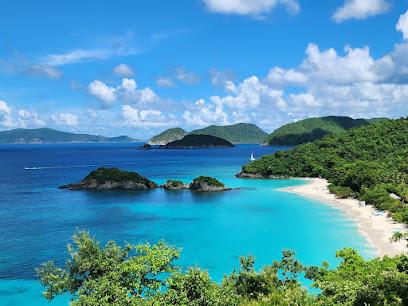
Parasail Virgin Islands
Experience breathtaking views of St. Thomas with Parasail Virgin Islands. Soar high above the turquoise waters for an unforgettable adventure!
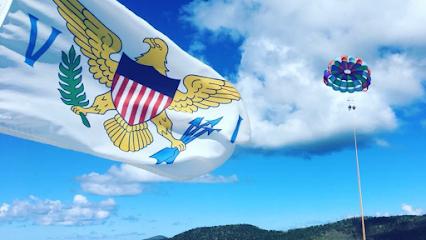
Coki Point Beach
Discover vibrant marine life and lively Caribbean vibes at St. Thomas' popular Coki Point Beach, a snorkeling paradise!
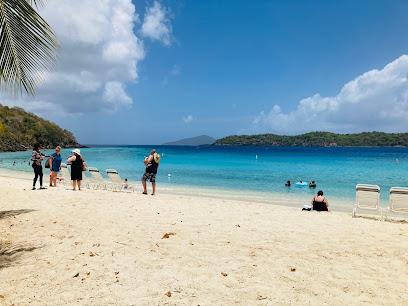
Soggy Dollar Bar
Experience the legendary Soggy Dollar Bar on Jost Van Dyke, home of the Painkiller cocktail and the ultimate Caribbean beach vibe.
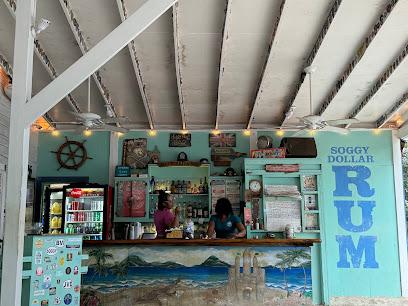
The Baths
Explore the stunning granite grottos and serene pools of Virgin Gorda's iconic Baths, a natural wonder millions of years in the making.
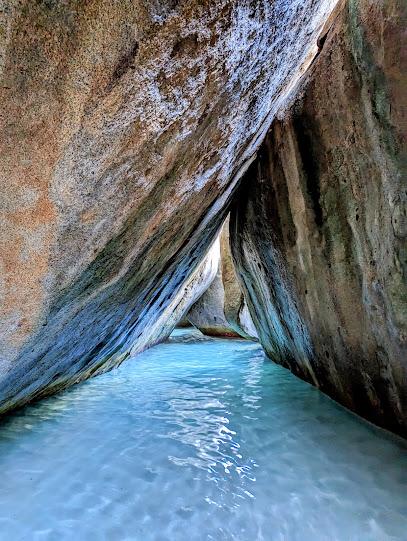
Lady Lynsey Catamaran
Experience St. Thomas in style with Lady Lynsey Catamaran: luxury sailing, snorkeling adventures, and unforgettable Caribbean memories await!

American Yacht Harbor
Experience the heart of St. Thomas' boating scene at American Yacht Harbor, offering premier marina services, dining, and island access.
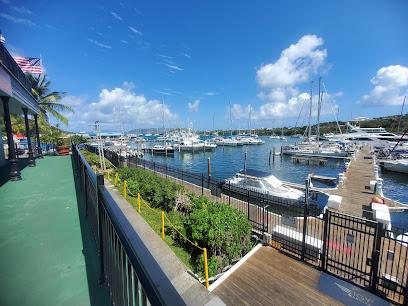
Lindquist Beach
Escape to Lindquist Beach in St. Thomas: Pristine sands, tranquil waters, and serene beauty await in this Caribbean paradise.
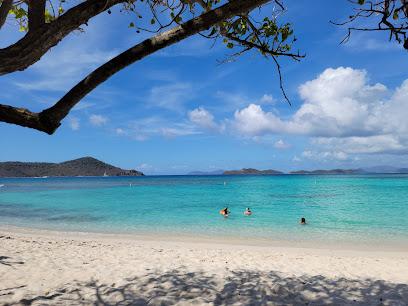
Annaberg Sugar Plantation
Discover the historic Annaberg Sugar Plantation in St. John: a journey into the island's past, showcasing sugar production and colonial life.
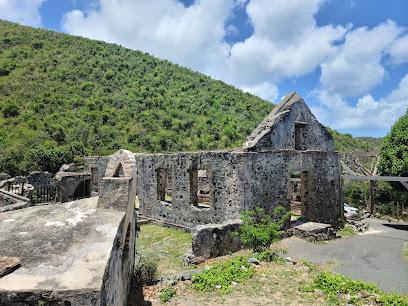
Honeymoon Beach
Escape to Honeymoon Beach in St. John: pristine sands, tranquil waters, and breathtaking views await in this Caribbean paradise.
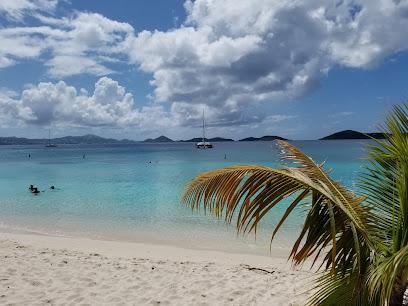
Foxy's, Jost Van Dyke, British Virgin Islands
Experience the vibrant atmosphere and stunning views at Foxy's, the iconic bar of Jost Van Dyke in the British Virgin Islands.
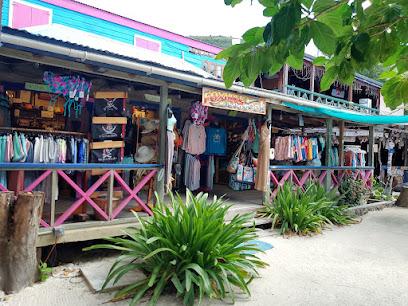
Hawksnest Beach
Discover Hawksnest Beach: St. John's easily accessible north shore paradise with pristine sands, clear waters, and vibrant snorkeling.
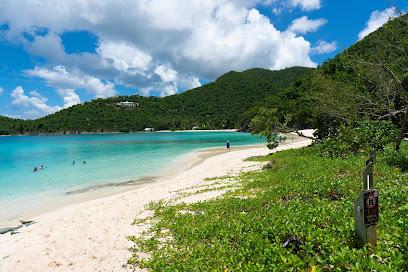
Trunk Bay
Discover Trunk Bay, St. John: Pristine sands, turquoise waters, and an underwater snorkeling paradise await in the heart of the US Virgin Islands National Park.
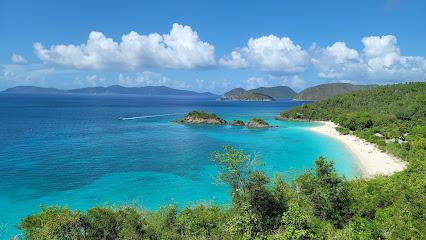
Sapphire Beach
Discover paradise at Sapphire Beach in St. Thomas: pristine sands, turquoise waters, and vibrant coral reefs await!
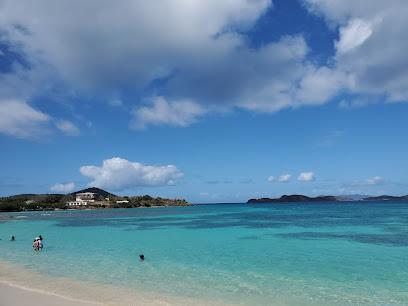
Essential places to dine
Bitter End Yacht Club
Experience unparalleled luxury and adventure at Bitter End Yacht Club in the British Virgin Islands - your ultimate getaway destination.
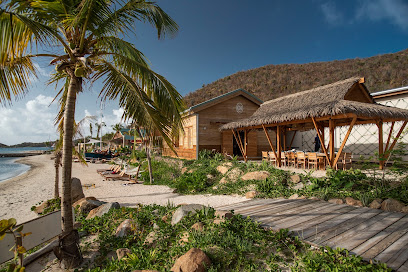
CocoMaya Restaurant
Discover the exquisite flavors of Asian fusion at CocoMaya Restaurant on Virgin Gorda - where culinary creativity meets stunning ocean views.
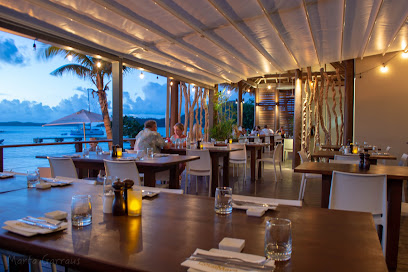
Hog Heaven
Experience authentic Caribbean flavors at Hog Heaven in Virgin Gorda - where stunning views meet delicious cuisine.
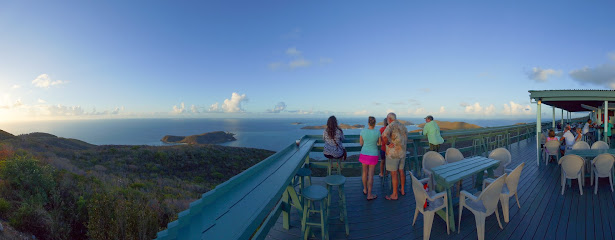
Top of the Baths
Discover breathtaking views and authentic Caribbean flavors at Top of the Baths, an unforgettable dining experience in the British Virgin Islands.
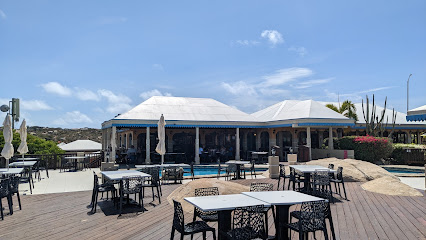
Bamboushay Restaurant & Lounge
Experience exquisite dining at Bamboushay Restaurant & Lounge with stunning waterfront views in Road Town.
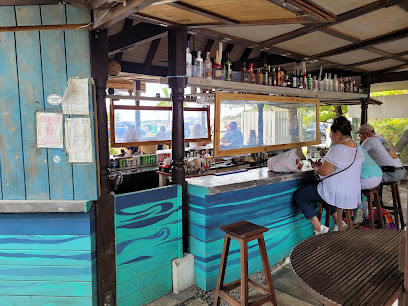
Sugarcane Restaurant
Discover Sugarcane Restaurant: A taste of Caribbean paradise in the heart of the British Virgin Islands.
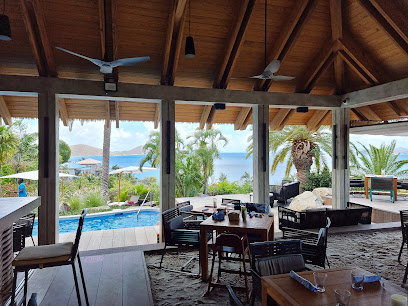
Chez Bamboo Restaurant
Experience authentic Caribbean cuisine at Chez Bamboo Restaurant in Spanish Town - where every meal tells a flavorful story.
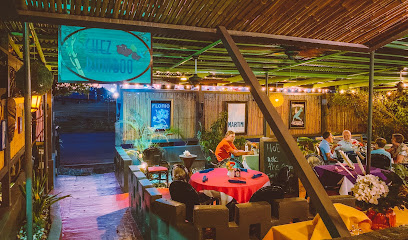
Fischer's Cove Beach Hotel & Restaurant
Experience tropical bliss at Fischer's Cove Beach Hotel & Restaurant - where exquisite dining meets breathtaking beachfront views.

North Sound Bistro
Experience unforgettable dining at North Sound Bistro in the British Virgin Islands with exquisite local cuisine and breathtaking waterfront views.
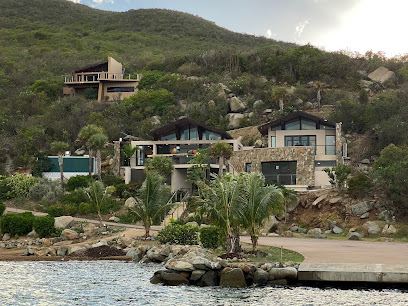
Loose Mongoose
Discover Caribbean flavors at Loose Mongoose on Beef Island – where vibrant cuisine meets breathtaking views in paradise.
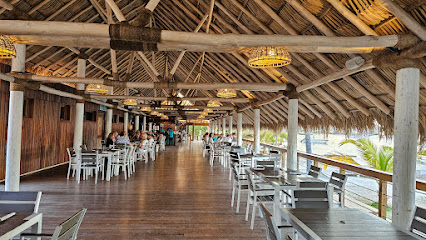
Nova
Experience unparalleled Caribbean cuisine amidst stunning views at Nova Restaurant in Virgin Gorda's picturesque North Sound.
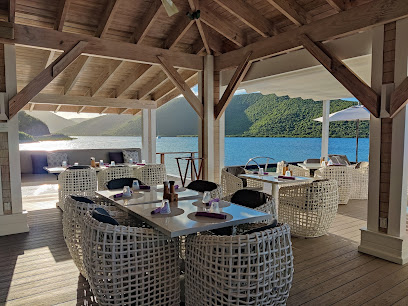
Mad Dog Bar & Restaurant
Experience authentic Caribbean flavors at Mad Dog Bar & Restaurant in Virgin Gorda, British Virgin Islands - where taste meets paradise.
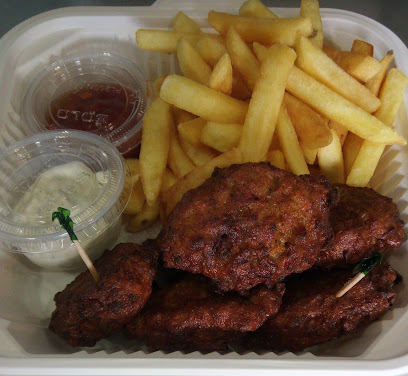
the restaurant at Leverick bay
Discover exquisite Caribbean dining with stunning views at The Restaurant at Leverick Bay in Virgin Gorda.
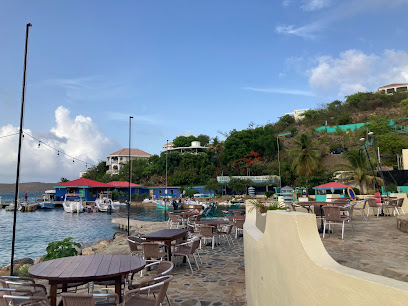
Radas Restaurant And Bar
Experience authentic Indian cuisine at Radas Restaurant And Bar in Spanish Town - a must-visit culinary destination for food lovers.
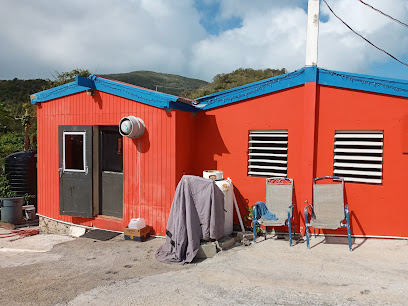
Bath and Turtle and Rendezvous Bar
Experience Caribbean culinary delights at Bath and Turtle – where vibrant flavors meet island hospitality in Spanish Town.
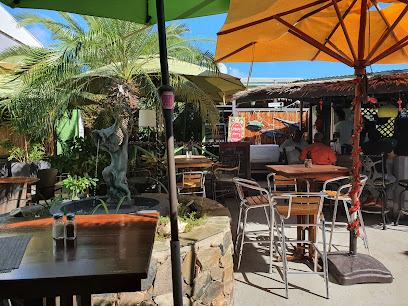
Markets, malls and hidden boutiques
Buck's Food Market
Explore local flavors and fresh produce at Buck's Food Market, the vibrant supermarket in Spanish Town, British Virgin Islands.
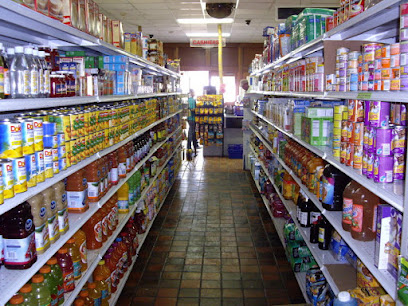
Rosy's Supermarket
Discover Rosy's Supermarket in Virgin Gorda for a taste of local culture, fresh produce, and unique Caribbean goods to enrich your island adventure.
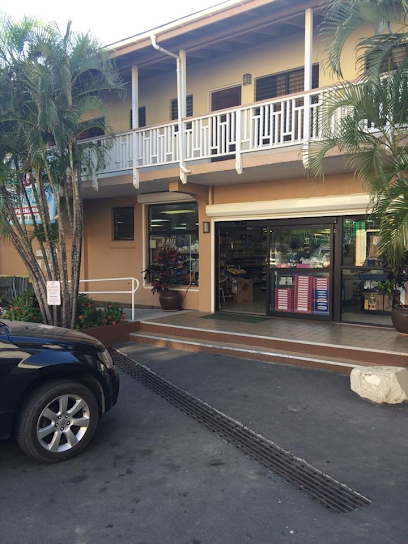
Spanish Town
Explore the vibrant shops and local delicacies at Spanish Town, the ultimate shopping centre in the British Virgin Islands.
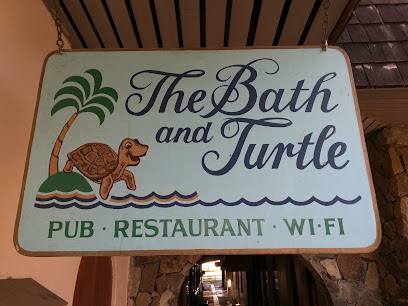
Crafts Alive Village
Discover unique crafts and souvenirs at Crafts Alive Village, where local artistry meets stunning ocean views in the British Virgin Islands.
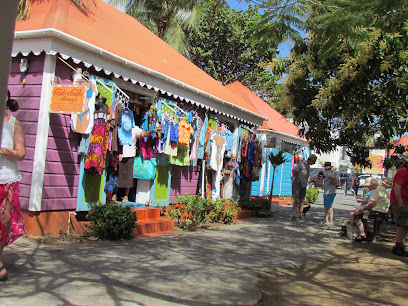
RiteWay Virgin Gorda
Explore RiteWay Virgin Gorda for a diverse selection of local and international groceries in the heart of the British Virgin Islands.
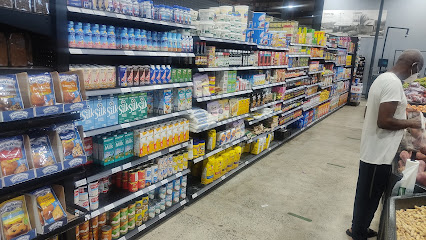
Brew at Virgin Gorda Yacht Harbour
Experience the perfect blend of gourmet coffee and stunning marina views at Brew at Virgin Gorda Yacht Harbour.
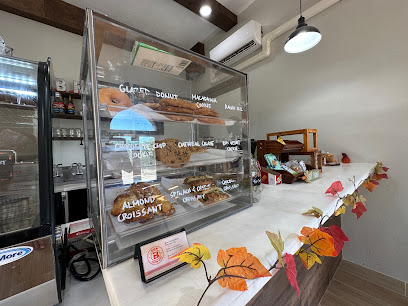
Mr. Nice Guy
Discover the charm and uniqueness of Mr. Nice Guy, a variety shop in Spanish Town offering local treasures and unforgettable shopping experiences.
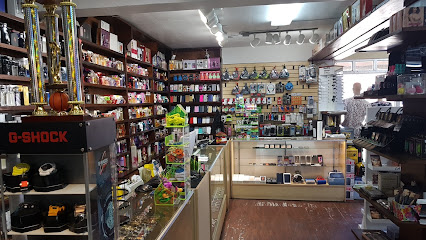
Varieties & Electronics
Explore unparalleled shopping in Road Town at Varieties & Electronics, the ultimate destination for clothing and appliances in the British Virgin Islands.
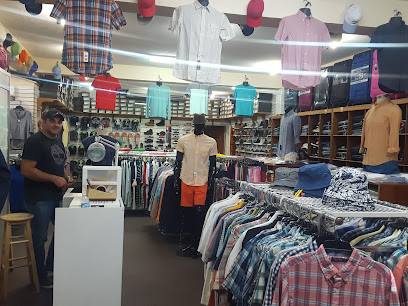
GOODFELLAS
Explore the vibrant fashion scene at Goodfellas, Road Town's premier clothing shop, where style meets the spirit of the British Virgin Islands.
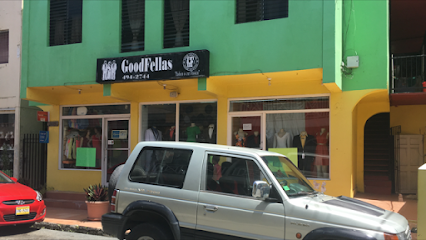
Chef’s Pantry Supermarket / Deli
Explore Leverick Bay's culinary delights at Chef’s Pantry Supermarket / Deli, featuring fresh groceries, gourmet sandwiches, and delightful coffee.
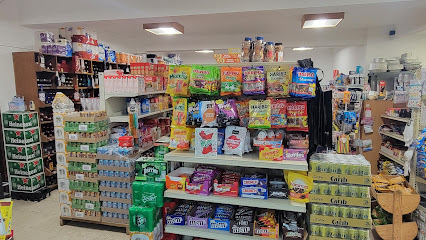
Grace To You International Soaps and More
Explore the beauty of organic skincare at Grace To You International Soaps and More in the British Virgin Islands - a treasure trove for tourists seeking unique cosmetics.
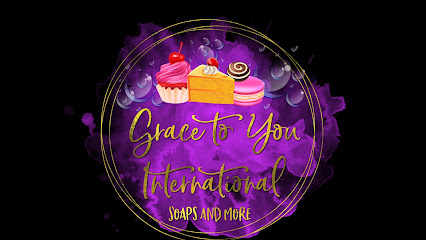
Nutmeg and Co
Discover unique souvenirs and local crafts at Nutmeg and Co, your go-to gift shop in the British Virgin Islands.
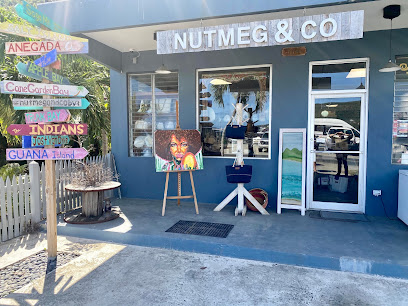
Supa Valu
Supa Valu: Your Premier Supermarket in Spanish Town, Offering Local Flavors and Everyday Essentials.

Just Kidding Children's Boutique
Explore Just Kidding Children's Boutique in Road Town for unique children's clothing, toys, and accessories in the heart of the British Virgin Islands.
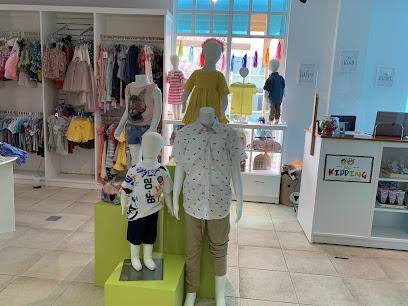
Serendipity Books & Toys
Explore Serendipity Books & Toys in Road Town for a unique selection of literature and toys that capture the essence of the British Virgin Islands.
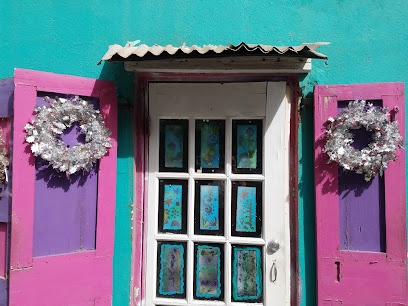
Essential bars & hidden hideouts
CocoMaya Restaurant
Experience the exquisite blend of Asian fusion and Caribbean flavors at CocoMaya Restaurant in Virgin Gorda.
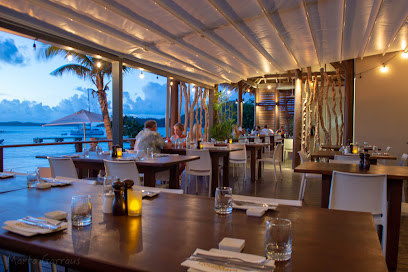
Sugarcane Restaurant
Experience the exquisite flavors of the Caribbean at Sugarcane Restaurant in Virgin Gorda, where culinary artistry meets breathtaking views.
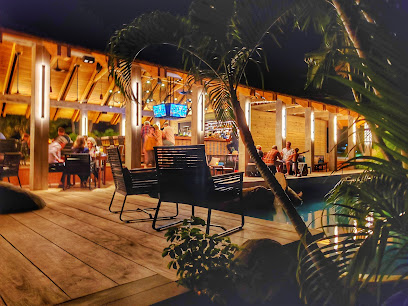
Mad Dog Bar & Restaurant
Experience the vibrant flavors and stunning views at Mad Dog Bar & Restaurant in Virgin Gorda's breathtaking landscapes.
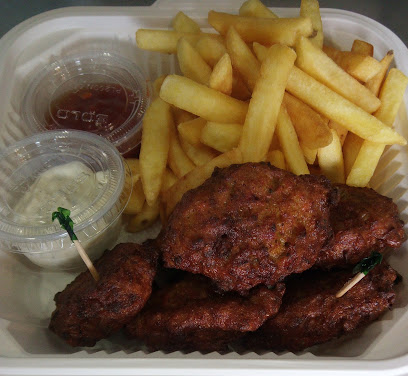
Bath and Turtle and Rendezvous Bar
Experience exquisite dining at Bath and Turtle and Rendezvous Bar, where local flavors meet stunning views in Spanish Town, BVI.
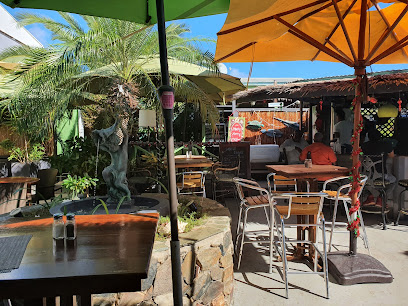
Mermaid's Dockside Bar and Grill
Experience the flavors of the Caribbean at Mermaid's Dockside Bar and Grill in Spanish Town, a perfect spot for fresh seafood and stunning views.
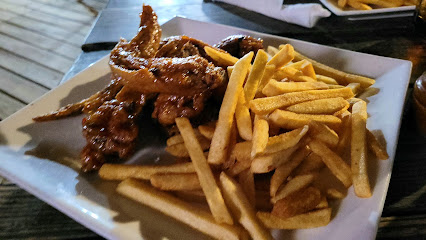
Rum Runner
Discover Rum Runner in the British Virgin Islands: a top grill offering fresh, local cuisine and stunning views in a relaxed island atmosphere.
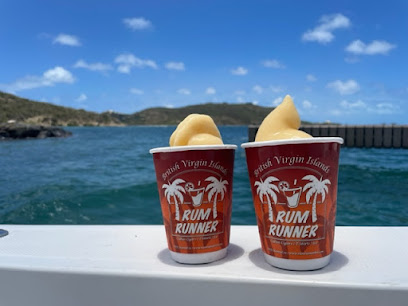
Good Vibes Bar & Grill
Savor the best of Caribbean cuisine at Good Vibes Bar & Grill in Spanish Town, where every meal is a celebration of flavor and culture.
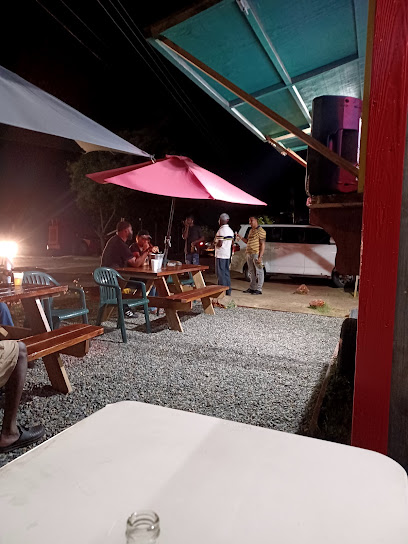
The Crawl Pub
Experience the vibrant flavors of the British Virgin Islands at The Crawl Pub, where casual dining meets local charm in Spanish Town.
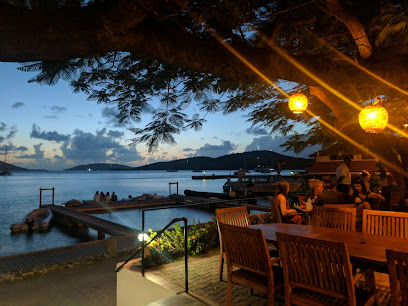
Green House
Experience the vibrant energy and local culture at Green House, a must-visit bar in Spanish Town, British Virgin Islands, known for its lively atmosphere and tropical drinks.
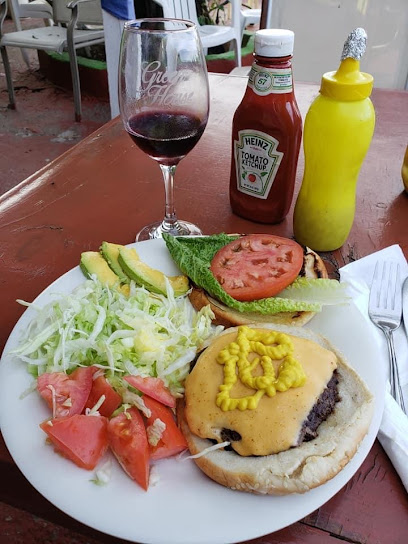
Wheel House Restaurant & Bar
Experience authentic Caribbean flavors with stunning ocean views at Wheel House Restaurant & Bar in Virgin Gorda.

Fisher’s Cove Beach bar
Discover the serene charm of Fisher’s Cove Beach Bar in the British Virgin Islands, where stunning views and refreshing drinks await you.
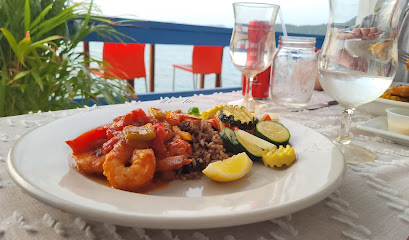
Gunnie’s Cool Corner
Experience vibrant nightlife and stunning views at Gunnie’s Cool Corner, the ultimate bar destination in Virgin Gorda's tropical paradise.

D’s Roc Bar
Discover D's Roc Bar in Spanish Town for an unforgettable Caribbean grill experience, where every bite is a celebration of local flavors.
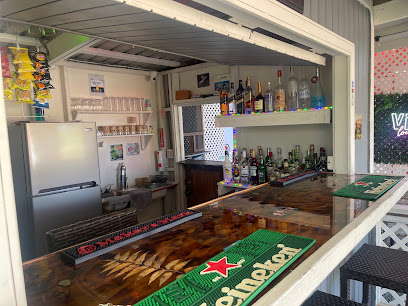
Jumbies Bar
Experience the vibrant ambiance of Jumbies Bar in the British Virgin Islands, where refreshing cocktails meet stunning ocean views.
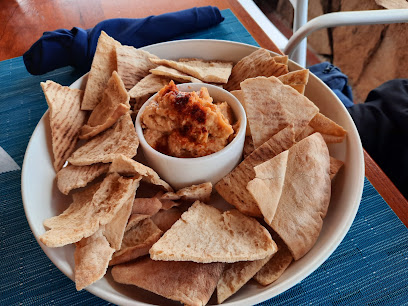
Local Phrases
-
- HelloGood day
[gud dey] - GoodbyeGoodbye
[gudbai] - YesYeah, man
[yeh, man] - NoNo, man
[no, man] - Please/You're welcomePlease
[pliiz] - Thank youThank you
[tenk yu] - Excuse me/SorryExcuse me
[ek-skyoos mi] - How are you?How you doin'?
[hao yu doin'] - Fine. And you?Irie. You good?
[eye-ree. yu gud?] - Do you speak English?You speak English?
[yu spiik ing-glish?] - I don't understandI don't catch
[ai dont kach]
- HelloGood day
-
- I'd like to see the menu, pleaseShow me the menu, please
[sho mi deh menu, pliiz] - I don't eat meatI don't eat flesh
[ai dont iit flesh] - Cheers!Cheers!
[chiiz] - I would like to pay, pleaseI want to pay, please
[ai want tu pei, pliiz]
- I'd like to see the menu, pleaseShow me the menu, please
-
- Help!Help!
[help!] - Go away!Go away!
[go aweh!] - Call the Police!Call the Police!
[kaal deh poliis!] - Call a doctor!Call a doctor!
[kaal ah dokta!] - I'm lostI lost
[ai lost] - I'm illI sick
[ai sik]
- Help!Help!
-
- I'd like to buy...I want to buy...
[ai want tu bai...] - I'm just lookingI look only
[ai luk onli] - How much is it?How much it deh?
[hao mach it deh?] - That's too expensiveThat too dear
[dat tu diir] - Can you lower the price?You can drop it?
[yu kan drap it?]
- I'd like to buy...I want to buy...
-
- What time is it?What time it is?
[wot taim it iz?] - It's one o'clockIt one o'clock
[it wun o'klok] - Half past (10)Half ten
[haf ten] - MorningMorning
[mawnin] - AfternoonAfternoon
[aftanoon] - EveningEvening
[iivnin] - YesterdayYesterday
[yestadeh] - TodayToday
[tudeh] - TomorrowTomorrow
[tomaro] - 1One
[wan] - 2Two
[tuu] - 3Three
[chrii] - 4Four
[foh] - 5Five
[faiv] - 6Six
[siks] - 7Seven
[sehn] - 8Eight
[eit] - 9Nine
[nain] - 10Ten
[ten]
- What time is it?What time it is?
-
- Where's a/the...?Where the...?
[weh deh...?] - What's the address?What the address?
[wot deh adres?] - Can you show me (on the map)?You can show me (on map)?
[yu kan sho mi (on map)?] - When's the next (bus)?When the next (bus)?
[wen deh neks (bas)?] - A ticket (to ....)A ticket (to ....)
[a tiket (tu ....)]
- Where's a/the...?Where the...?
History of Virgin Gorda
-
Before the arrival of European explorers, Virgin Gorda and the surrounding islands were inhabited by the Arawak and Carib peoples. These indigenous communities thrived on the island's natural resources, fishing in its waters and farming its fertile lands. Evidence of their presence, such as pottery shards and stone tools, has been discovered in various archaeological sites across the island.
-
Virgin Gorda was first encountered by Europeans in the late 15th century during Christopher Columbus's second voyage to the New World in 1493. Columbus named the island 'Santa Ursula y las Once Mil Vírgenes' in honor of Saint Ursula and her 11,000 virgins. Over time, the name was shortened to the Virgin Islands, with Virgin Gorda translating to 'Fat Virgin' due to the island's mountainous shape resembling a rotund woman lying on her side.
-
In the 17th century, the British, Dutch, and Spanish vied for control over the Virgin Islands. By the early 18th century, the British had established a more permanent presence. They utilized Virgin Gorda as a strategic point for trade and military operations, as well as for sugarcane and cotton plantations. The island's economy during this period was heavily reliant on enslaved African labor.
-
One of the most significant historical landmarks on Virgin Gorda is the Copper Mine, which dates back to the 19th century. Established by British miners around 1838, the mine extracted copper ore until it ceased operations in the mid-1860s. The remnants of the mine, including the chimney, engine house, and other structures, provide a fascinating glimpse into the island’s industrial past.
-
The abolition of slavery in the British Empire in 1834 led to significant changes on Virgin Gorda. Freedmen often turned to subsistence farming and fishing, while others migrated to nearby islands or further afield in search of better opportunities. The island's economy shifted away from plantation agriculture towards small-scale farming, fishing, and later, tourism.
-
In the mid-20th century, Virgin Gorda began to attract tourists with its stunning natural beauty, including the famous Baths—an area of unique granite boulders and pristine beaches. The development of luxury resorts and the establishment of the Virgin Gorda Yacht Harbour in the 1960s and 1970s bolstered the island's reputation as a premier travel destination in the Caribbean.
-
Virgin Gorda hosts several vibrant cultural festivals that celebrate its rich heritage. The Virgin Gorda Easter Festival, established in the late 1960s, is one of the most anticipated events, featuring parades, music, dance, and local cuisine. These festivals not only provide entertainment but also preserve and promote the island's cultural traditions.
Virgin Gorda Essentials
-
Virgin Gorda is accessible primarily by air and sea. The nearest international airport is Terrance B. Lettsome International Airport (EIS) on Tortola. From there, you can take a short connecting flight via local airlines like Air Sunshine or charter a private plane to Virgin Gorda Airport (VIJ). Alternatively, you can take a ferry from Tortola, which usually takes about 30-40 minutes. Direct ferries from St. Thomas in the U.S. Virgin Islands are also available, making Virgin Gorda a convenient stop if you're island-hopping.
-
Once on Virgin Gorda, transportation options include taxis, rental cars, and scooters. Taxis are readily available at the airport and ferry dock, and they offer fixed rates to various destinations on the island. Car rentals are another convenient option, and you'll find several agencies near the airport and ferry dock. Scooters can be a fun way to explore the island, but be cautious of road conditions and driving rules. Bicycles are also available for rent for those who prefer a more eco-friendly mode of transport.
-
The official currency in the British Virgin Islands is the U.S. Dollar (USD). Credit cards are widely accepted in hotels, restaurants, and larger shops, but it's advisable to carry some cash, especially for small purchases or in more remote areas. ATMs are available in Spanish Town and other major areas, but fees may apply for international cards. It's a good idea to inform your bank of your travel plans to avoid any issues with card transactions.
-
Virgin Gorda is generally a safe destination for tourists. However, like any travel destination, it's important to take standard precautions. Avoid isolated areas at night and keep an eye on your belongings, particularly in crowded places like beaches and markets. Petty theft can occur, so use hotel safes for valuables. There are no specific high-crime areas targeting tourists, but staying vigilant and aware of your surroundings is always recommended.
-
In case of emergency, dial 911 for immediate assistance. The island has a small medical clinic in Spanish Town that can handle minor injuries and illnesses. For more serious medical issues, patients may need to be transferred to Tortola or St. Thomas. It's highly recommended to have travel insurance that covers medical emergencies and evacuation. Pharmacies are available for over-the-counter medications, and most staff speak English, making it easier to communicate your needs.
-
Fashion: Do dress casually but tastefully. Beachwear is appropriate at the beach but not in towns or restaurants. Religion: Do respect local customs and traditions. Cover your shoulders and knees when visiting religious sites. Public Transport: Do use taxis and rental cars for convenience. Don’t rely on public buses as they are limited. Greetings: Do greet people with a friendly 'hello' or 'good day.' Handshakes are common. Eating & Drinking: Do try local delicacies like fresh seafood and traditional Caribbean dishes. Don’t refuse hospitality, as it is considered impolite.
-
To experience Virgin Gorda like a local, visit the local markets in Spanish Town where you can buy fresh produce and handmade crafts. Engage with the locals; they are known for their friendliness and are often willing to share stories about the island's history and culture. Don’t miss exploring The Baths, a unique geological formation with stunning grottoes and pools. For a more off-the-beaten-path experience, hike to Gorda Peak for panoramic views of the island and surrounding waters.
Trending Landmark in Virgin Gorda
-
The Baths
-
Cyril B. Romney Tortola Pier Park
-
Bitter End Yacht Club
-
CocoMaya Restaurant
-
Leverick Bay Resort & Marina
-
Rosewood Little Dix Bay
-
Devil's Bay National Park
-
Saba Rock Resort
-
Hog Heaven
-
Oil Nut Bay
-
Top of the Baths
-
J.R. O'Neal Botanical Gardens
-
Gorda Peak National Park
-
Callwood Rum Distillery
-
Virgin Gorda Yacht Harbour
Nearby Cities to Virgin Gorda
-
Things To Do in Spanish Town
-
Things To Do in The Valley
-
Things To Do in Road Town
-
Things To Do in Tortola
-
Things To Do in Anegada
-
Things To Do in West End
-
Things To Do in Jost Van Dyke
-
Things To Do in Culebra
-
Things To Do in Vieques
-
Things To Do in Fajardo
-
Things To Do in Luquillo
-
Things To Do in West End Village
-
Things To Do in Long Bay Village
-
Things To Do in South Hill
-
Things To Do in Blowing Point Village











